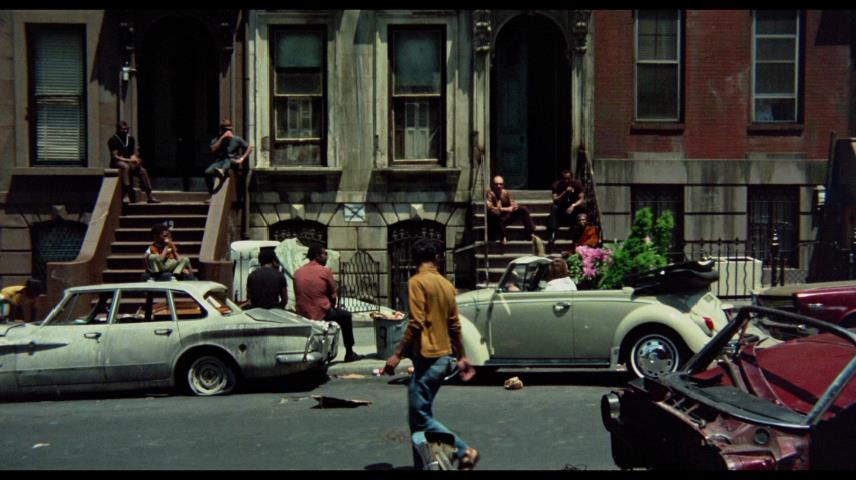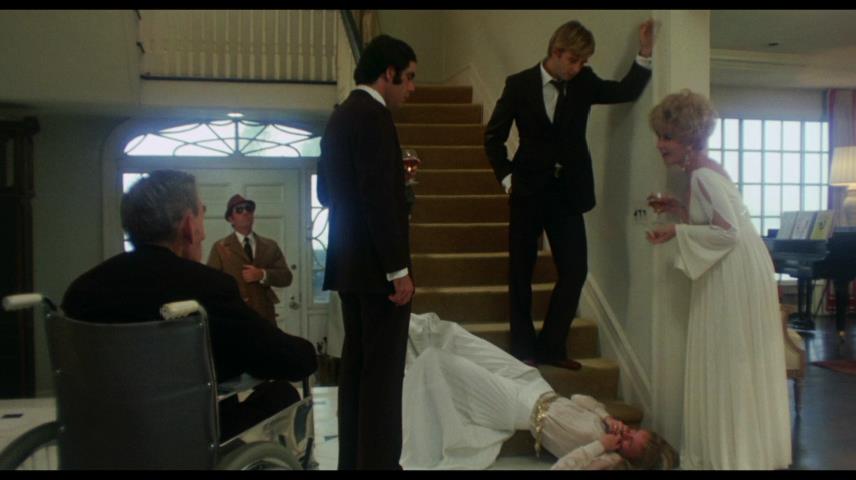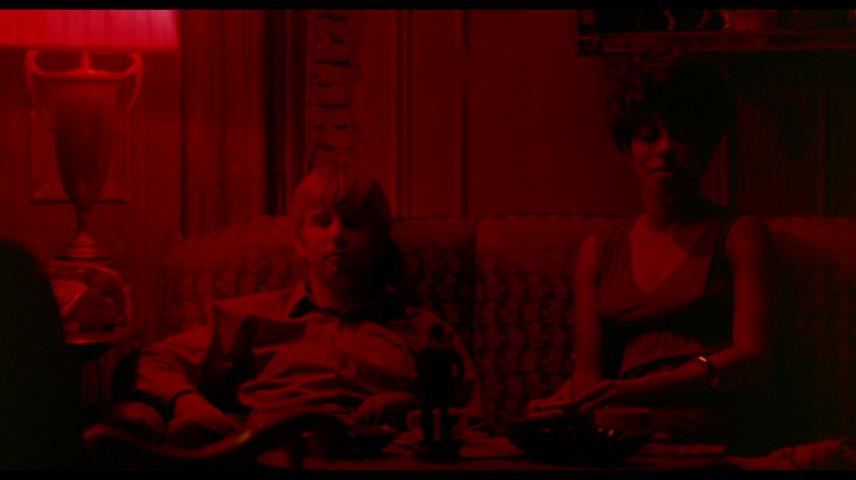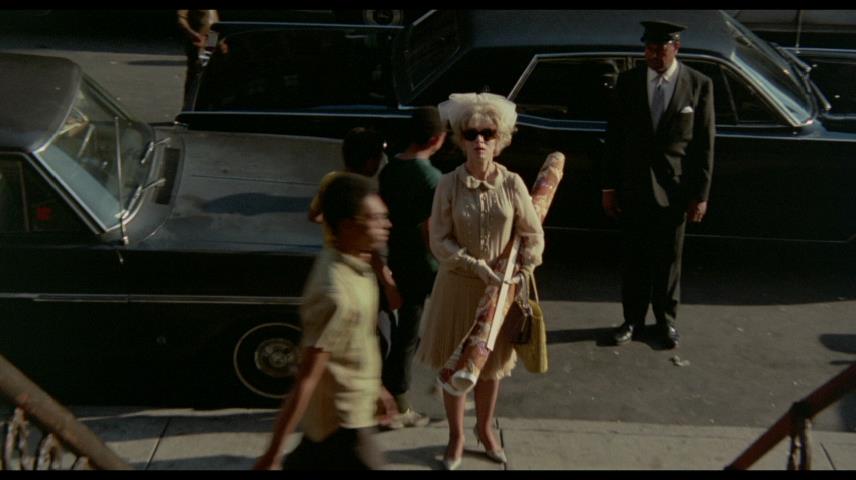| Reviews & Columns |
|
Reviews DVD TV on DVD Blu-ray 4K UHD International DVDs In Theaters Reviews by Studio Video Games Features Collector Series DVDs Easter Egg Database Interviews DVD Talk Radio Feature Articles Columns Anime Talk DVD Savant Horror DVDs The M.O.D. Squad Art House HD Talk Silent DVD
|
DVD Talk Forum |
|
|
| Resources |
|
DVD Price Search Customer Service #'s RCE Info Links |
|
Columns
|
|
|
Landlord, The
Hal Ashby's little-seen 1970 directorial debut comes onto Blu-Ray from Kino. A young Beau Bridges plays Elgar, part of a rich white family in Long Island who hasn't done much with his life and doesn't really need to. He wants to move out on his own though, so he buys an old apartment building in Brooklyn with the plan to rip out most of the insides and design his own home with high ceilings. It's not too clear why he chose this building in this area; the big shock is supposed to be that the population is mainly poor black people when he's a rich white person, but he seems open to embracing cultures different than his own. His plans get put on hold when he meets the building's residents. Pearl Bailey steals the movie as Marge, who first greets him with a shotgun telling him to leave but then invites him inside for lunch once he explains he's the new landlord where they quickly connect despite their differences. He then meets Fanny (Diana Sands) who stops by for a visit. He soon realizes that it would be a bad idea to make these people leave and find new homes, especially when Fanny says that he "could pass for a human being" right before her husband (Louis Gossett Jr., credited here simply as Lou Gossett) drives him out with a bow and arrow. He decides instead to give the building some much-needed improvements that the previous owners neglected.

Elgar's rich family is simply baffled as to why he's purchased this building- his parents immediately exclaim that it's in "a colored neighborhood." His mother, played by Lee Grant who was nominated for Best Supporting Actress in this role, is incredibly ditzy and self-absorbed- but later bonds with Marge over another impromptu lunch when she visits the building to give some decorating advice. The residents increasingly take a liking to Elgar though, even inviting him to one of their parties as one of the only white people there. It's after this event that he spends some more time at Fanny's apartment and ends up sleeping with her while her husband is doing a short stint in jail. At the same time he falls in love with dancer Lanie (Marki Bey) at a local bar- who could pass for white but discloses that she's actually biracial.
While The Landlord is mostly remembered for addressing racial issues, it easily shows the contrast between the rich and poor as well- and in some ways the poor characters are better off than the rich ones. As Elgar still visits his family a few times, we see that they clearly have a few screws loose, in an isolated world playing croquet and other stereotypical ‘rich people' activities, while the building tenants are more down to earth and realistic about life. The tone is quite similar to Harold and Maude which Ashby directed the following year, with quick random flashbacks and sudden cuts that almost make no sense- the first minute in fact features a shot from Hal Ashby's own wedding for an unapparent reason, and there are several flashbacks to Elgar as a child in school where the teacher asks "How do we live?" The movie is somewhat interesting visually but not very good looking, mainly because of the dilapidated setting in which most of it takes place. Many shots in the building are quite dark as well, while scenes at Elgar's family's lavish home are bright yet a bit sterile. Perhaps this Blu-Ray will sell a bit better just because it hasn't been widely available in other formats before, otherwise this isn't a top "upgrade" candidate which I'll discuss next.

The film is presented in its proper 1.85 ratio, from clean elements. Focus, even on credits, appears a bit soft but likely intentional. Colors are never overly bright. As said, most of this movie's settings are not exactly visually pleasing but of course that is the point. The dual-layered disc shows no compression artifacts, even in the darkest moments- you will of course need to have your brightness and contrast adjusted properly or you may not even be able to tell what is happening in some instance. As this movie was released by United Artists, which has had a habit of updating the opening logos of their movies going back to the first tapes from Magnetic Video in the 1970s, I was quite pleased to see that this transfer retains the original United Artists opening with its Transamerica byline. Yes, we know the two are no longer affiliated with each other but they were when this movie was released and it always bothers me when these things are altered. Hopefully the original openings will remain on future releases.
The mono audio is nothing special, the quality is about on par with other optical sound tracks of this era with sound not being a huge priority during the production. It's encoded in 2-channel DTS Master Audio and stays properly centered. Subtitles are included which appear to show dialogue and song lyrics but not off-screen sounds.

Most of Kino's discs have had sparse extras but there are nearly 90 minutes' worth here, all shot on 24fps hi-def video. The first features Beau Bridges, wearing the same shirt used in parts of the movie, discussing the racial and cultural issues addressed including how he was perceived by the neighborhood's real residents during filming. Lee Grant appears next with her own recollections, and the most interesting segment features producer Norman Jewison talking about his working relationship with Hal Ashby and his unfortunate early death. Ashby had edited Jewison's In the Heat of the Night prior to this; the studio had wanted Jewison to direct The Landlord but Ashby was suggested as Jewison was busy preparing for Fiddler on the Roof. The movie's trailer is included in hi-def, along with the trailer for Where's Poppa? in standard-def widescreen and Ashby's Coming Home in standard-def 4x3.

The Landlord wasn't a huge success upon release and it's been largely absent from home video since its inception, appearing only on a "manufactured on demand" DVD from MGM and on Netflix streaming shortly after that had just started. This disc likely won't have wide distribution either but will give the movie a chance to be seen better than it has in decades, and the recent insights from Bridges, Grant and Jewison are welcome additions as well.
Jesse Skeen is a life-long obsessive media collector (with an unhealthy preoccupation with obsolete and failed formats) and former theater film projectionist. He enjoys watching movies and strives for presenting them perfectly, but lacks the talent to make his own.
|
| Popular Reviews |
| Sponsored Links |
|
|
| Sponsored Links |
|
|
| Release List | Reviews | Shop | Newsletter | Forum | DVD Giveaways | Blu-Ray | Advertise |
|
Copyright 2024 DVDTalk.com All Rights Reserved. Legal Info, Privacy Policy, Terms of Use,
Manage Preferences,
Your Privacy Choices | |||||||











